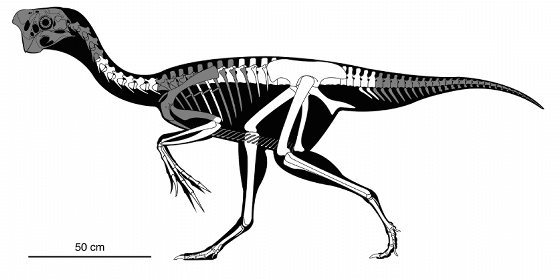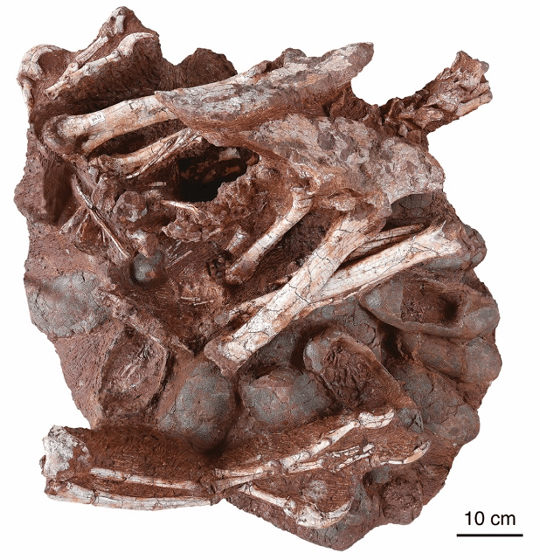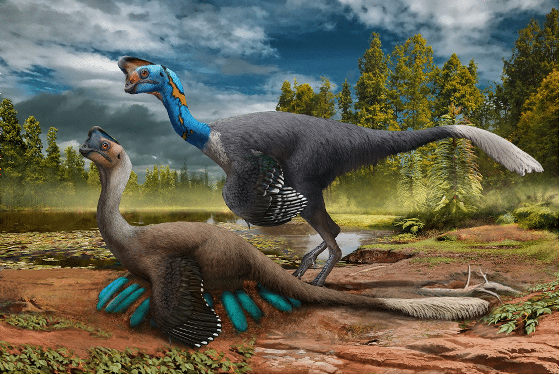The world's first 'fossil dinosaur holding a pre-hatched egg' is found

A fossil of a dinosaur that died while crouching on an unhatched egg was found in China, as if it were warming an egg. It is the first time in the world that such a fossil has been discovered with an embryo remaining in an egg.
An oviraptorid preserved atop an embryo-bearing egg clutch sheds light on the reproductive biology of non-avialan theropod dinosaurs --ScienceDirect
Researchers Announce World's First Dinosaur Preserved Sitting on Nest of Eggs with Fossilized Babies --Carnegie Museum of Natural History
https://carnegiemnh.org/press/researchers-announce-worlds-first-dinosaur-preserved-sitting-on-nest-of-eggs-with-fossilized-babies/
Jaw-Dropping Fossil Find Contains a Dinosaur Sitting on an Entire Clutch of Eggs
https://www.sciencealert.com/fossilized-dinosaur-found-brooding-on-a-nest-of-preserved-eggs-with-actual-embryos-inside
The fossil dates from the Cretaceous period, the last period of the Mesozoic era, called the 'dinosaur era,' and was discovered in Ganzhou, Jiangxi Province, southern China. Dinosaurs are believed to be Oviraptorosauria, which have no teeth and beaks.

This is the fossil that was discovered. The dinosaurs were crouching on at least 24 eggs, seven of which were not hatched and contained embryos with a skeleton inside. From this situation, researchers suspect that the child died in the middle of hatching.

'This kind of discovery is extremely rare, especially in fossilized dinosaurs. Although several fossils of adult Oviraptorosauria crouching on eggs have been found so far. The egg fossil found this time was ready for hatching. There is no doubt that this Oviraptorosauria was on the nest longer than usual. No, this dinosaur was a caring parent and probably put his life into raising children, 'said Matt Lamanna, a dinosaur paleobiologist at the Cleveland Museum of Natural History, one of the authors of the paper.
On the other hand, although the fossil can be interpreted as 'I was worried about the eggs that do not hatch easily and warmed them for a long time', it is pointed out that such an interpretation is a problem. It is possible that the parent died while simply warming the egg.
In addition, the illustration that reproduces the situation at that time from the discovered fossil is below.

Oxygen isotope analysis also showed that some embryos were more mature than others. This is a feature of some dinosaurs called 'asynchronous hatching' that is also present in some later evolved birds.
It is also interesting that the fossil had what was called a 'gastrolith' in the abdomen of the parent. Gastroliths are thought to be stones that dinosaurs deliberately swallowed to grind food and aid digestion.
'The amount of biological information that can be collected from this single fossil is tremendous,' said Xing Xu, a paleontologist at the Institute of Vertebrate Paleontology, Institute of Vertebrate Anthropology, Institute of Vertebrate Science, China.
Related Posts:







